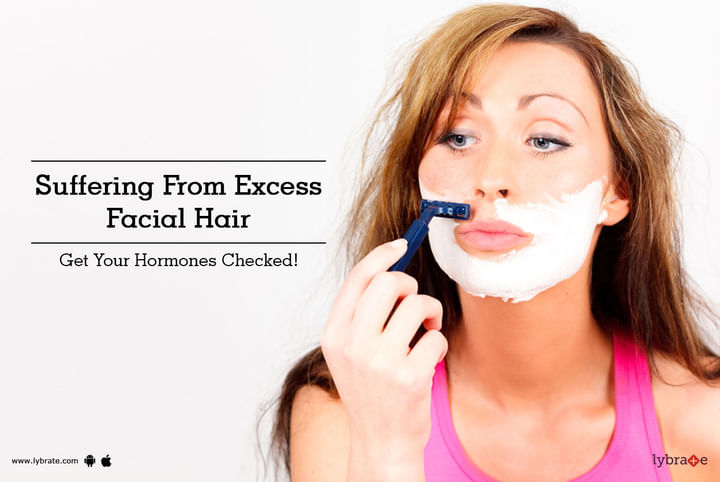Suffering From Excess Facial Hair - Get Your Hormones Checked!
Every woman likes to look into the mirror and find not an extra strand of hair on her face, be it the upper lip or near the ears. While it is not uncommon for women to have hair on these and other areas, most women resort to multiple ways to get rid of this. The pattern of this unnecessary hair growth is very similar to the pattern seen in males normally.
This condition of excessive hair growth is known as hirsutism and can be caused by multiple causes, as listed below.
- Genetic or racial: While the European women have a more clean face that is free of hair, the Mediterranean and Indian women are highly likely to have more facial hair growth. There is also a strong family history relation, and it is hereditary.
- Androgens (testosterone): This is a male hormone, essential for the development of male sexual characters. Though it is present in very minute amounts in all women, in some, there could be higher than these minimal levels, leading to minor masculine characters, facial hair being one of them.
- Hormonal imbalances: There are multiple hormonal issues which can manifest as increased facial hair growth. The two most common ones include polycystic ovarian syndrome ((PCOS)) and adrenal conditions including tumours, Cushing's syndrome, and hyperplasia. In all these cases, there is increased amount of androgens, leading to excessive facial hair.
- Medication side effect: Some medications like testosterone, cyclosporine, anabolic steroids, and Minoxidil also lead to increased amounts of facial hair in women. Some other medications used to treat migraines, seizures, schizophrenia, and hypertension can also cause hirsutism. This is indirectly due to increased levels of male hormones in the system, producing these effects.
- Birth control pills: These also affect the hormone levels and lead to increased facial hair.
- Obesity: Most women with facial hair are also on the heavier side, and most people have a reduction in hair once weight is managed.
Treatment: The underlying cause should be treated for controlling hair growth. If there is an inducing medication, an alternative should be looked at. While hormone levels can be altered, in most cases, not much can be done. These need to be dealt with using one of the following methods - depilatory creams, waxing, plucking, shaving, laser reduction, electrolysis, and weight loss.
When reading through the above, it is obvious that a lot of causes for hirsutism point towards hormones. This also helps identify hormonal abnormalities in the earlier stages. This helps to identify hormonal disorders in their earlier stages, which are managed with lesser complications. The next time you feel there is more hair on your chin or cheeks, get your hormone levels checked. If you wish to discuss about any specific problem, you can consult an endocrinologist.



+1.svg)
